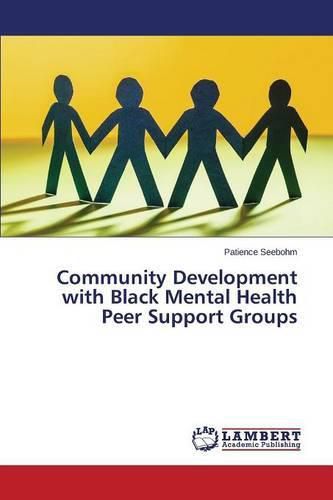Readings Newsletter
Become a Readings Member to make your shopping experience even easier.
Sign in or sign up for free!
You’re not far away from qualifying for FREE standard shipping within Australia
You’ve qualified for FREE standard shipping within Australia
The cart is loading…






This title is printed to order. This book may have been self-published. If so, we cannot guarantee the quality of the content. In the main most books will have gone through the editing process however some may not. We therefore suggest that you be aware of this before ordering this book. If in doubt check either the author or publisher’s details as we are unable to accept any returns unless they are faulty. Please contact us if you have any questions.
High levels of mental distress and coercive medical treatment have persisted among the UK’s Black African and African Caribbean population for many years. There is no consensus on why this is so, but there is some evidence that peer support groups organised by and for Black people with mental health problems can generate hope and well-being among their members. This doctorate study used participatory action research methods to explore how community development practitioners can help such groups to develop and thrive. A qualitative case study approach was used, involving two Black peer support groups plus the community and mental health practitioners who worked alongside them. A range of other practitioners, carers and mental health service users were also interviewed. A ‘liberation approach’ was identified whereby practitioners could support groups to challenge oppressive practices, enabling group members to break free from the stigmatising label of ‘mad, Black and dangerous’.
$9.00 standard shipping within Australia
FREE standard shipping within Australia for orders over $100.00
Express & International shipping calculated at checkout
This title is printed to order. This book may have been self-published. If so, we cannot guarantee the quality of the content. In the main most books will have gone through the editing process however some may not. We therefore suggest that you be aware of this before ordering this book. If in doubt check either the author or publisher’s details as we are unable to accept any returns unless they are faulty. Please contact us if you have any questions.
High levels of mental distress and coercive medical treatment have persisted among the UK’s Black African and African Caribbean population for many years. There is no consensus on why this is so, but there is some evidence that peer support groups organised by and for Black people with mental health problems can generate hope and well-being among their members. This doctorate study used participatory action research methods to explore how community development practitioners can help such groups to develop and thrive. A qualitative case study approach was used, involving two Black peer support groups plus the community and mental health practitioners who worked alongside them. A range of other practitioners, carers and mental health service users were also interviewed. A ‘liberation approach’ was identified whereby practitioners could support groups to challenge oppressive practices, enabling group members to break free from the stigmatising label of ‘mad, Black and dangerous’.